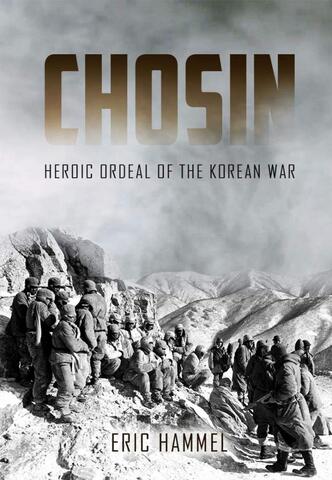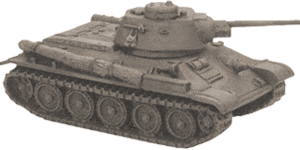January Book Review: Chosin

Eric Hammel's book Chosin was originally published during the Cold War. But it remains a must read, as shown by the recently released paper-back edition of the book reviewed here.
One of Hammel's goals in Chosin was to show what it was like to be there on the ground in a typically harsh Korean winter during one of the greatest military crisis in which the U.S. Marine Corps and Army was ever involved. To that point he absolutely knocks it out of the proverbial park in structuring his narrative around the view of these Marines and G.I.'s left to fight for their lives by a less than helpful if not outright incompetent higher level of command.
The book highlights the U.S. 1st Marine Division's efforts as the Chinese Army forced it to conduct a fighting retreat from the Chosin Reservoir late in 1950. The author does not hold back in from the very beginning of the book describing the poor decision-making of the U.S. higher level command that left thousands of Marines and soldiers exposed to counter-attack. The sense of pending doom is palpable in these pages. Notably this is in many ways a book that reads as much as a gripping novel as a first-rate work of military history. Anyone with an interest in tactical small-unit combat will find much to appreciate in these pages.
Either via this paperback update or the original hard cover edition this book has received glowing reviews, and for good reason. Nevertheless, I want to close by taking exception to the point that this is a book, as one reviewer wrote, serves as a "testimony to American military greatness."
If one is narrowing in on the tactical fighting prowess demonstrated by the U.S. Marines and U.S. Army front-line soldiers fighting in inhospitable conditions against massive odds (reaching well over 10:1) then I completely agree with that statement. Outside of that narrow focus however one has to remember what happened at Chosin was the cap on a slew of epic command failures that could have easily been avoided by an even remotely competent performance from what were ostensibly combat-experienced higher level U.S. commanders and intelligence officers.
In zooming out and assessing in particular the larger decision-making of those involved here from the corps level on up, as well as the larger U.S. intelligence community, then what happened at Chosin was a complete cluster-fuck of the highest order. One that led to an epic defeat no less. Let's not kid ourselves, though the U.S. 1st Marine Division in particular dealt out death and destruction on a massive scale - it was not only defeated but endured such heavy losses it had to be pulled out of the line for an extended period of rest and refitting. Mind you, that wasn't the fault of the U.S. 1st Marine Division - it performed magnificently against all odds in merely surviving what the Chinese threw at it early in the winter of 1950.
To the author's credit the foreward of this book points out this is a book about defeat. From there, Hammel let's his readershp know who is to blame without completely turning his fierce prose and intellect loose on the individuals and institutions that failed their fighting men. Nevertheless, he also doesn't pull any punches either and the author's intellectual honesty is much appreciated in that regard. From it's very first words and throughout the length of Chapter One in particular the reader is reminded again and again about the stunning intelligence and command failures that left thousands of brave U.S. Marines, and G.I.'s exposed to a potential slaughter only their incredible bravery, and combat prowess was able to stave off (even there only in part, as U.S. casualties were ghastly).
This larger story of U.S. command failure at the highest levels and corresponding intelligence errors have dogged the U.S. military establishment to this day. Note that outside of perhaps Iraq in 1990-1991 the U.S. hasn't won an actual war since World War II (and during the Second World War the Red Army did the heavy lifting). Because the nature of most post 1945 wars the U.S. has participated in were either colonial or limited the uneven U.S. miliary performance of the past 80 years hasn't truly had a strategic impact on our global standing. I am not going into detail in this review regarding these larger historical trends afflicting U.S. military efficacy, but they are clearly trends. Trends that can have deadly outcomes for our front-line servicemen, as shown so grippingly by Hammel in his work here.
Perhaps poor decision-making and intelligence failures resonate the most with me because that, along with abysmal attention to logistics, (logistics being something that conversely the U.S. military historically does better than anyone) were the prime reasons for German defeat in the Second World War. Regardless, if one of these days we find ourselves in a shooting war against a peer competitor then these long-standing command and intelligence failings afflicting the U.S. way of war are something we had better get right, and soon.



Post new comment